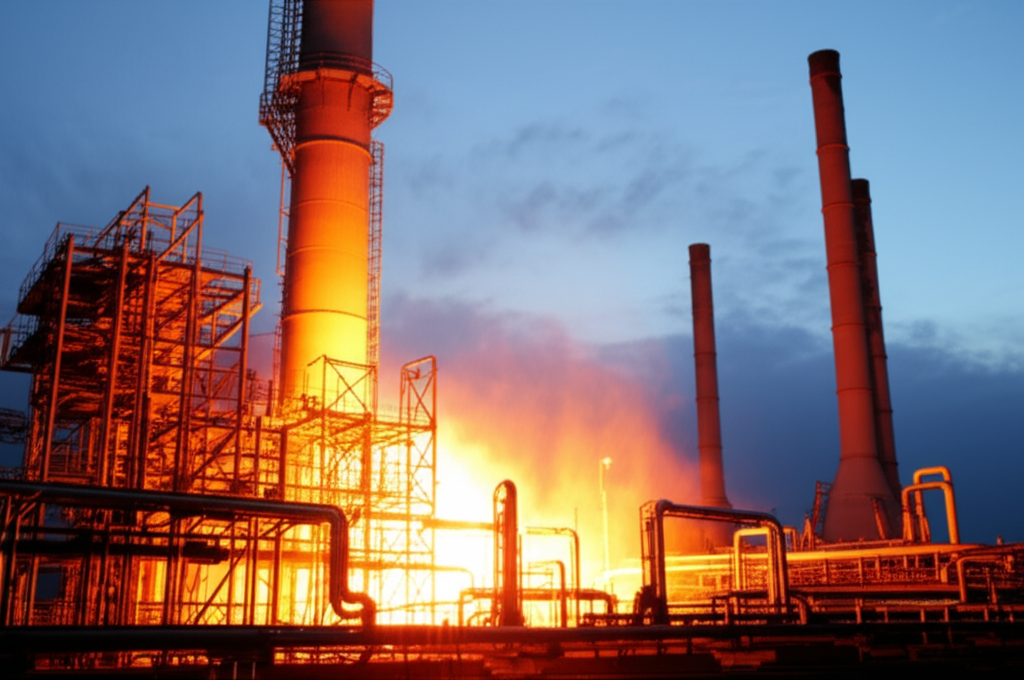A groundbreaking liquid-phase Alfol process technology for synthesizing high-purity isoprene, a vital monomer for synthetic rubber and fine chemicals, has been developed. This innovative approach significantly enhances efficiency and sustainability compared to existing Alfol methods like the dioxane or one-step processes. Combining methanol-to-formaldehyde conversion with optimized liquid-phase synthesis, the technology delivers exceptional product quality while minimizing environmental impact.
The core process integrates two primary units: methanol-to-formaldehyde conversion and the liquid-phase Alfol synthesis. In the methanol-to-formaldehyde unit, methanol undergoes staged processing including evaporation, superheating, catalytic oxidation, absorption, and steam generation to produce pure formaldehyde solution, specifically a 37% Formalin solution with methanol content meticulously controlled below 0.3%. Unreacted gases and waste streams are effectively managed within this closed-loop system.
The liquid-phase Alfol synthesis unit involves intricate processing of liquefied C4 feedstocks (utilizing n-butane, isobutane, or isobutene) and purified formaldehyde. Key stages include: synthesis of intermediate TBA (Tertiary Butyl Alcohol, termed 'TBA' in the process) using a cation exchange resin reactor; selective purification of formaldehyde; production of a dioxane distillate via acid-catalyzed reactions in a specialized reactor; and the final synthesis of isoprene by reacting TBA with the dioxane fraction. Advanced distillation techniques, including specific fractionation and dehydration towers, efficiently separate components, recycle unreacted materials, and isolate the high-value isoprene product.

Employing a fluidized-bed reactor for the critical isoprene synthesis stage, catalyzed by a specialized water-phase acid catalyst, ensures optimal reaction kinetics and product yield. Sophisticated separation trains, featuring multiple fractionation columns and integrated recycle loops, achieve isoprene purities exceeding 99.5% suitable for demanding applications like polymer-grade monomer production. Light ends are directed to fuel systems, while water streams are largely recycled within the process.
This technology offers substantial advantages over traditional Alfol methods. Crucially, it demonstrates remarkable feedstock flexibility, accommodating various readily available C4 streams. The integrated process design achieves significantly lower energy consumption compared to dioxane-based methods and results in markedly reduced wastewater and gaseous emissions. Furthermore, it handles lower specifications for raw materials like formaldehyde while delivering higher purity isoprene, translating into superior economics. The method's efficiency and environmental profile make it an especially suitable and economically viable route for petrochemical producers aiming for sustainable and cost-competitive isoprene supply to serve growing elastomer and fine chemical markets.
Manufacturing Facilities






Professional Export Experience
to Global Customers

1. 20 years of R&D, manufacturing and sales experience, serving customers in 60 countries and regions around the world;
2. Own R&D laboratory, pilot platform and large-scale production workshop, which can meet the audit requirements of global customers;
3. We can satisfy customers' perfect transition from small scale lab requirements (gram level) to commercialization requirements (hundred tons level).
A: We don't have Minimum Order Quantity, exact quantity should be provided before quotation for us to calculate the exact cost.
A: We don't provide free samples due to lots of request and expensive international courier's cost, we can deduct the sample charge after commercial order placed.
A: Our payment terms: Small or sample order: T/T IN ADVANCE. Commercial order: First order should be by T/T IN ADVANCE or L/C at sight, and following orders T/T 30~90days is acceptable subject to approval of credit application.